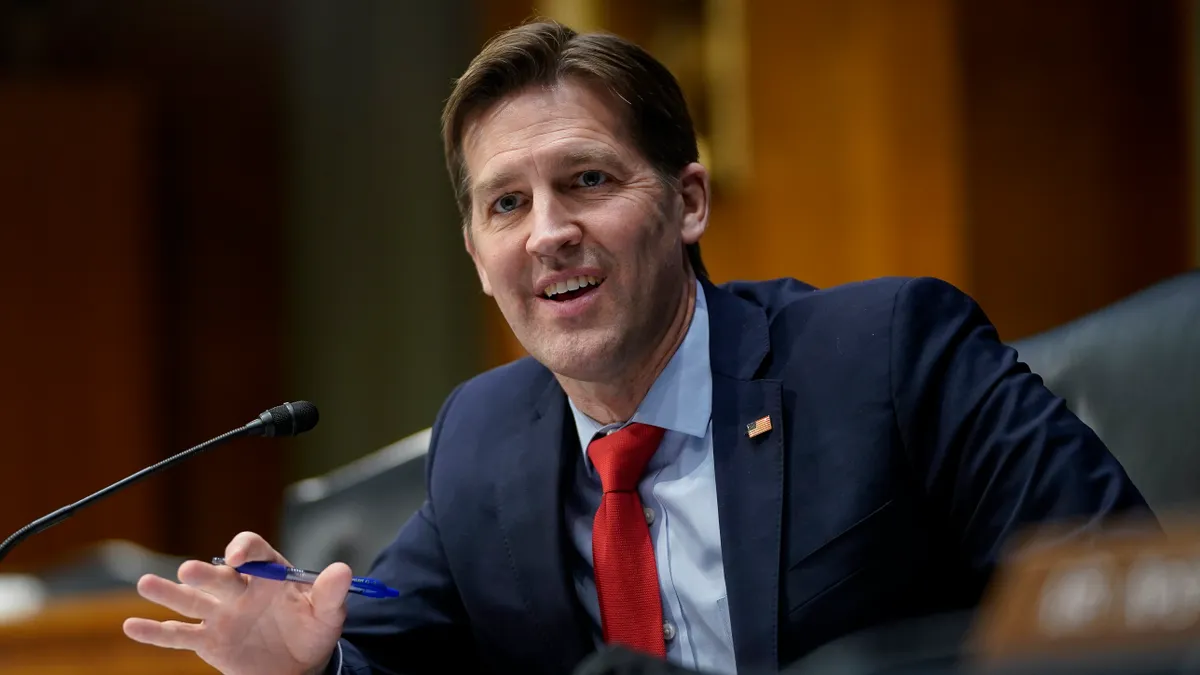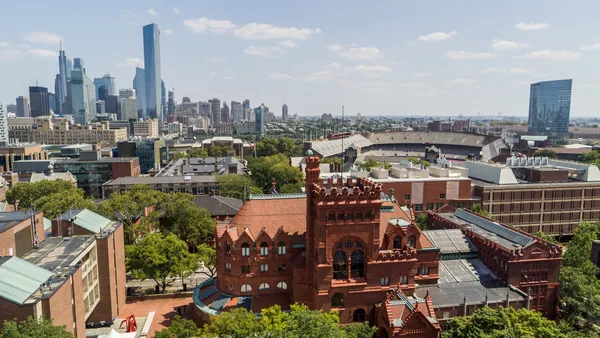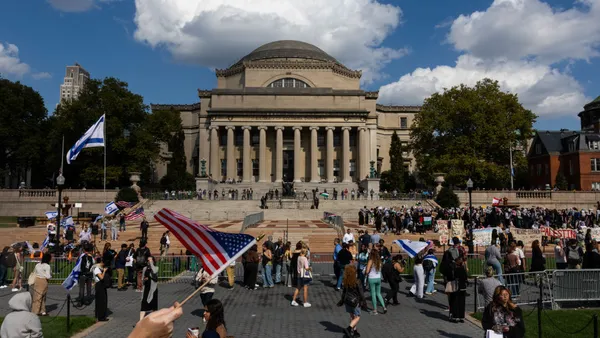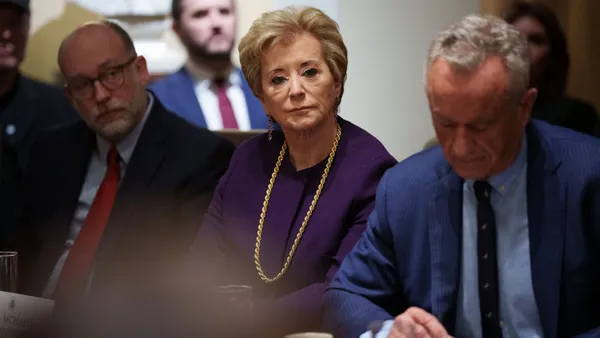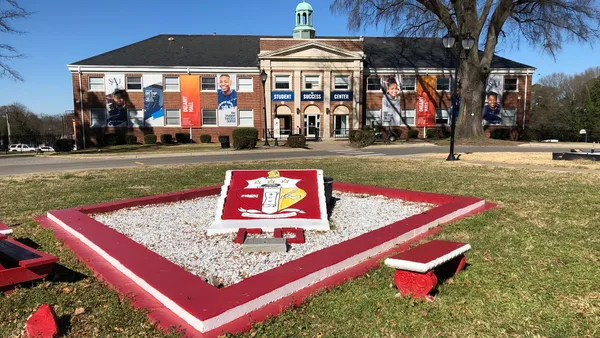Dive Brief:
- The University of Florida’s trustee board unanimously voted Tuesday to advance U.S. Sen. Ben Sasse as its pick to be the public flagship institution’s next president, rebuffing student and faculty detractors who deemed the Nebraska Republican too political and out of touch with campus values.
- Officials presented Sasse as an ambitious, next-generation leader who can build on a decade of progress at the university, where faculty just surpassed $1 billion in annual research spending. Meanwhile, many students rejected Sasse, citing his political positions on issues like same-sex marriage. Protests against his appointment continued Tuesday.
- The State University System of Florida’s governing board must now approve Sasse’s appointment as the institution’s 13th president. It's expected to consider him Nov. 10.
Dive Insight:
Criticism that the University of Florida’s presidential search was opaque and politicized has only escalated since Sasse was named the sole finalist for the job early last month. How he handles the last stages of his candidacy could go a long way determining how effectively he can transcend his label as a senator and effectively lead the university.
Compounding its problems are reports that academic freedom has frayed at the institution and that officials were fearful of crossing state policymakers, particularly Republican Gov. Ron DeSantis.
DeSantis has installed his allies and donors to positions across the public system. And concerns surfaced that one of his representatives reportedly helped guide Sasse through the presidential search process, an accusation the senator denied at Tuesday’s meeting.
Students protested Tuesday outside of the building as the trustee board interviewed Sasse. They were barred from entering after the institution began enforcing a decades-old policy of no indoor demonstrations. It started enforcing that policy after protesters last month drowned out Sasse as he spoke on campus. The institution's current president, Kent Fuchs, described their behavior as “chanting loudly" and "banging their fists on windows, walls and furniture.”
Nevertheless, about a dozen of Sasse’s critics still spoke during the public comment portion of Tuesday's meeting. Among them was Paul Wassel, president of the university's Graduate Student Council, who told the senator he faces an uphill battle winning over the campus.
Wassel said students “couldn’t imagine” following a president who made negative comments about demographic groups on campus. Much of the furor against Sasse centered on his stance against the U.S. Supreme Court ruling legalizing same-sex marriage.
“The message from the university community is quite clear,” Wassel said.
Board members were much more complimentary of Sasse, who helmed Midland University, a private nonprofit Lutheran-affiliated institution in Nebraska, before his election to the Senate in 2014.
All board members had a chance to question Sasse. Members asked him if he would commit to political neutrality and whether he would preserve academic freedom at the 60,000-student institution.
Sasse said he supports tenure at research institutions, likely a welcome stance for those concerned the senator would gut the practice. Sasse ended tenure at Midland when he was president there.
He also pledged “political celibacy,” echoching a similar commitment made by Mitch Daniels, the former governor of Indiana, when he took over as president at Purdue University about a decade ago. Sasse said he would not speak at political events, make partisan campaign donations or function as a surrogate for candidates.
Amanda Phalin, a board member and chair of the faculty senate, asked Sasse whether he would protect Chinese scholars who felt profiled and targeted by caustic rhetoric. Sasse said he would strive to make these academics feel comfortable.
Florida's governor has labeled China a “country of concern” and floated banning donations from countries of concern to colleges.
Phalin asked if Sasse would preserve pro-LGBTQ measures on the campus, including constructing gender-neutral restrooms and connecting students with pre-exposure prophylaxis, or PrEP, medication that when taken daily can highly reduce transmission of HIV.
Sasse said he can’t imagine deviating from the current president, Fuchs, on these matters. Sasse is expected to take over the presidency in early 2023, leaving his Senate seat.
Phalin later voted in favor of Sasse’s appointment, saying that she accounted for faculty concerns but that she believes his presidency would be in their best interest. The faculty senate last week passed a vote of no confidence in the presidential search, 67-15.
The search process has somewhat been shrouded in mystery. A dozen candidates, including Sasse, reached its end stages, but officials said none were willing to be named publicly unless they were the exclusive finalist.
A recent law in Florida hides the identities of public institutions' presidential contenders until the end of the process.
Board chair Mori Hosseini said he understood critiques about transparency of the search. But candidates were adamant about needing confidentiality, Hosseini said.
He ticked off a list of institutions that have only named one presidential finalist in recent years, including at the University of California, Berkeley.
DeSantis signed that confidentiality law. His office praised Sasse as “a good candidate.”



